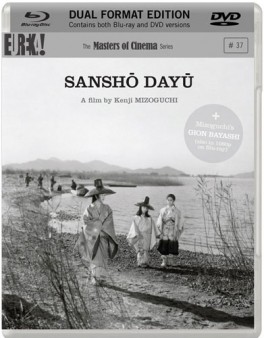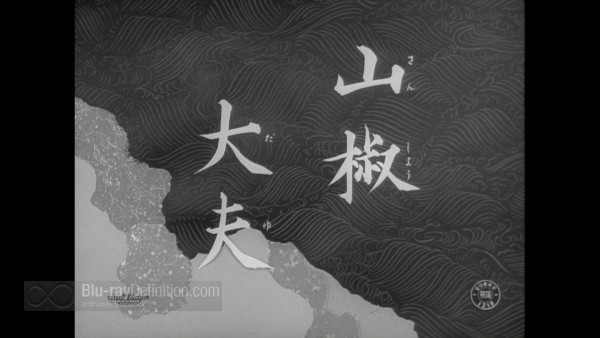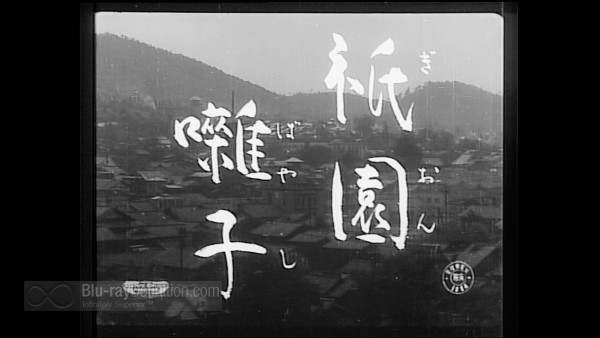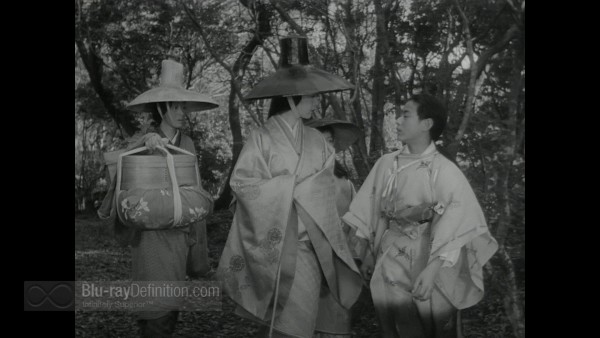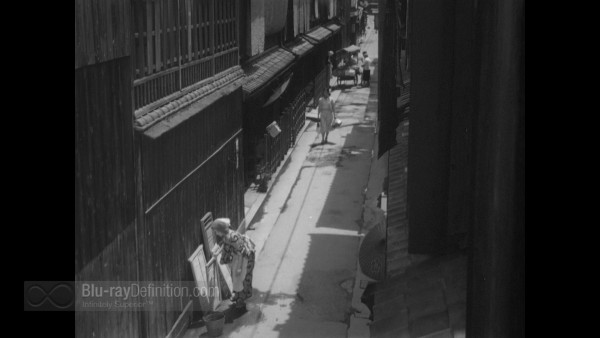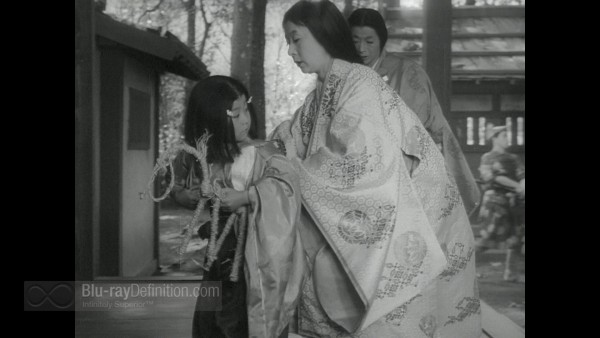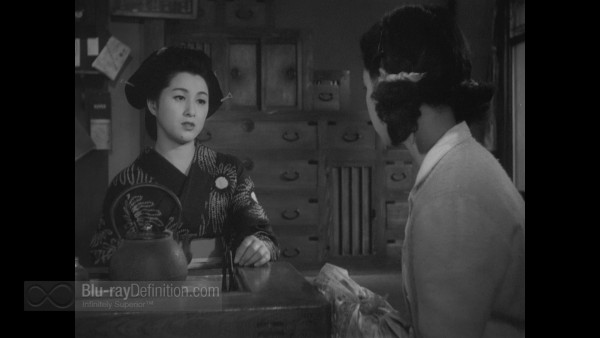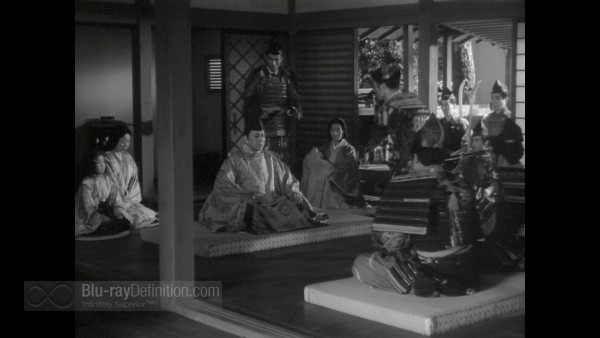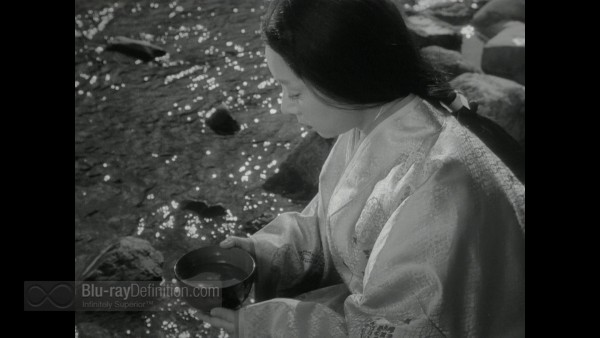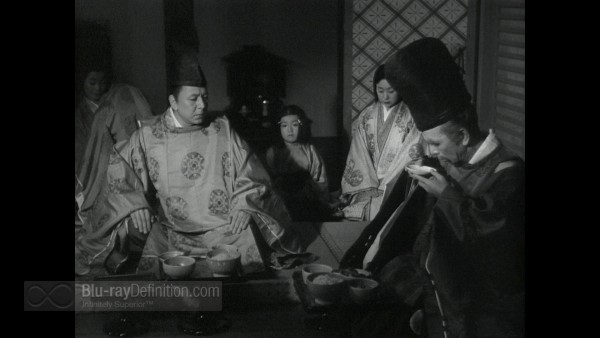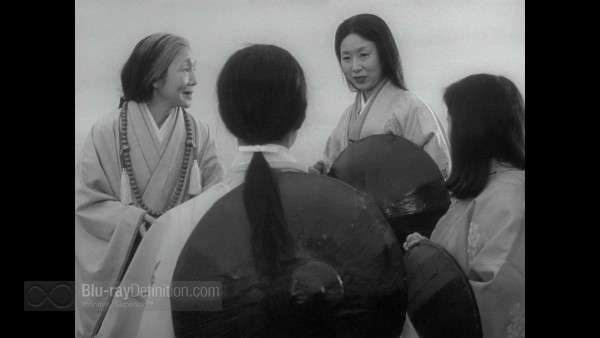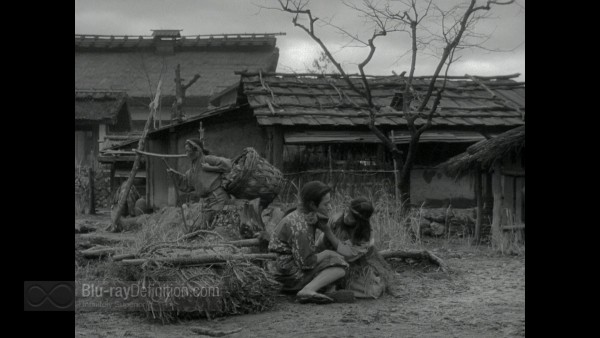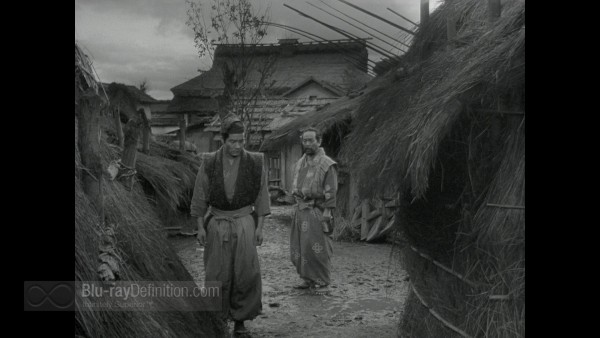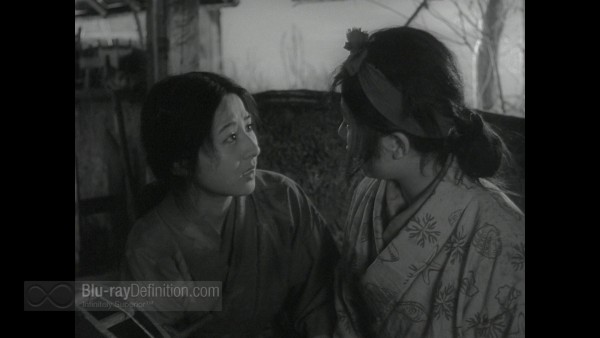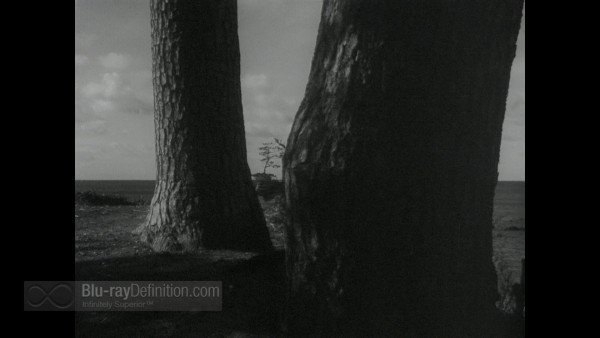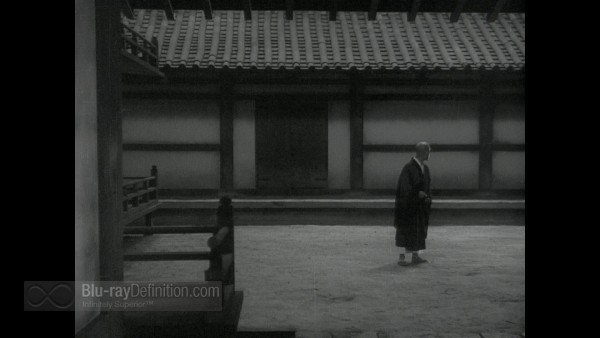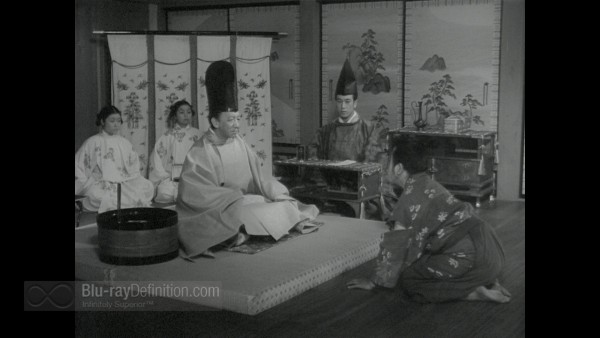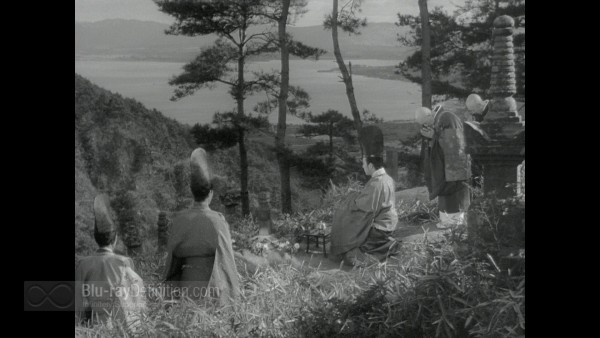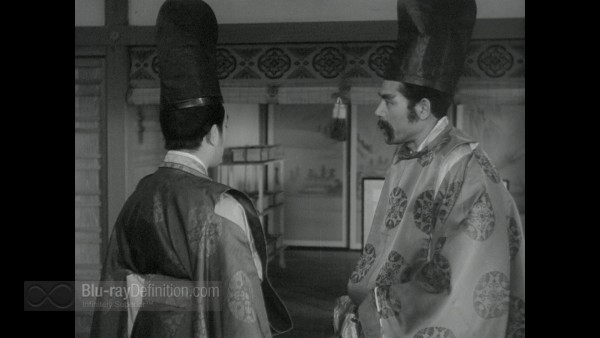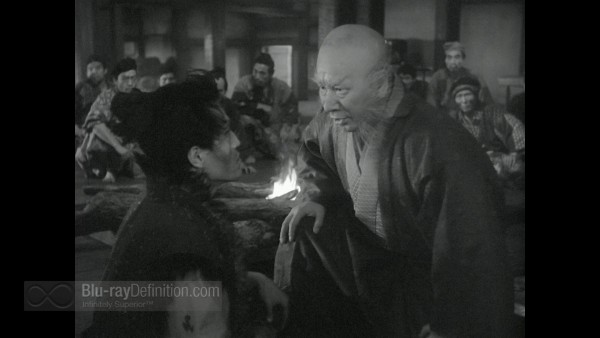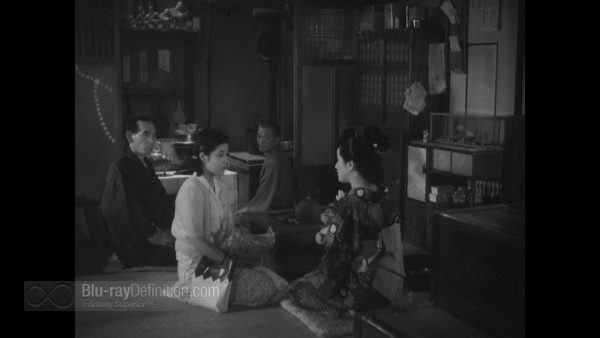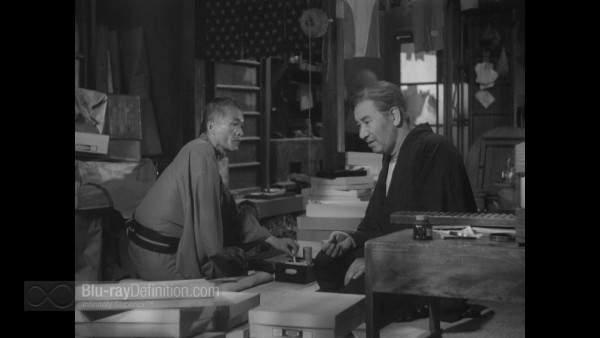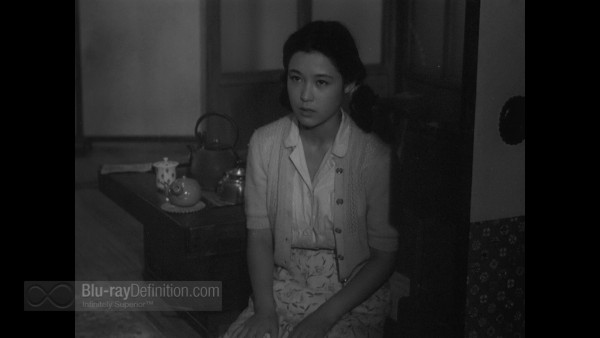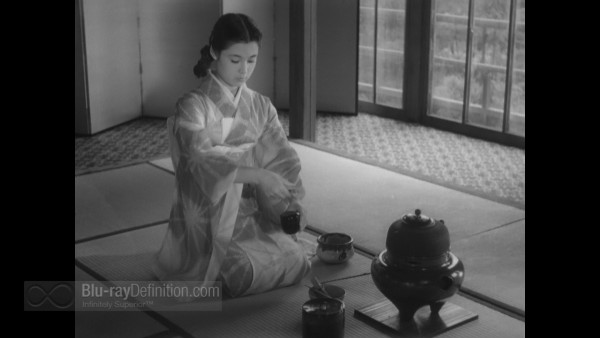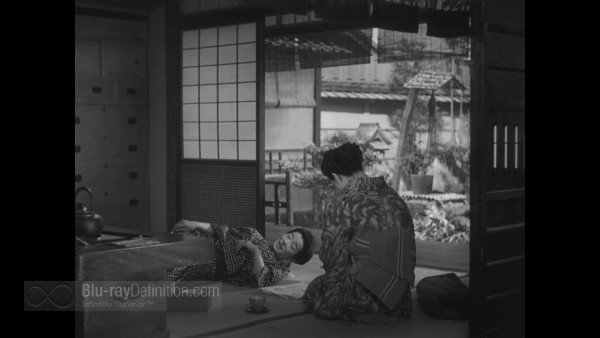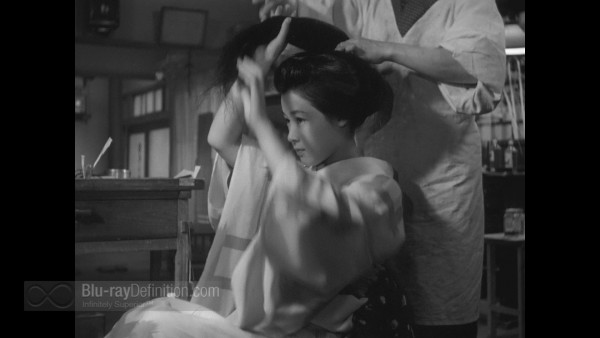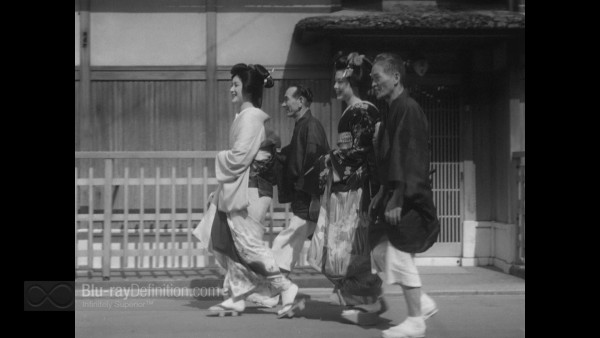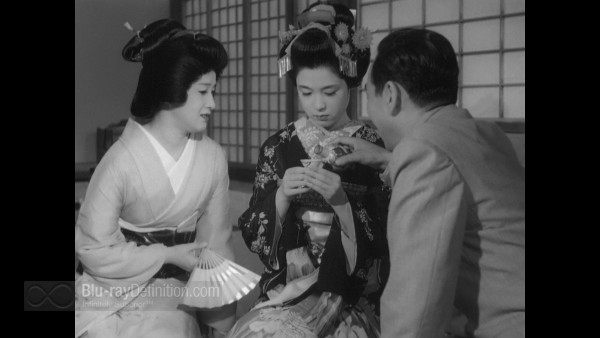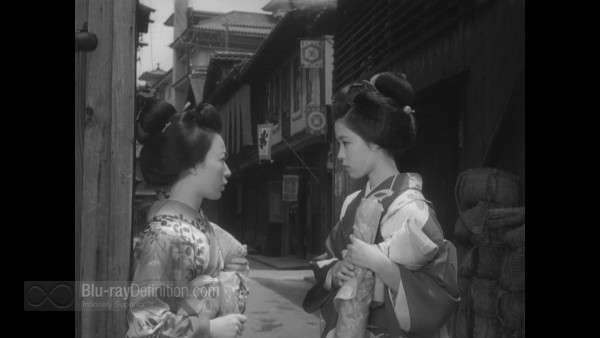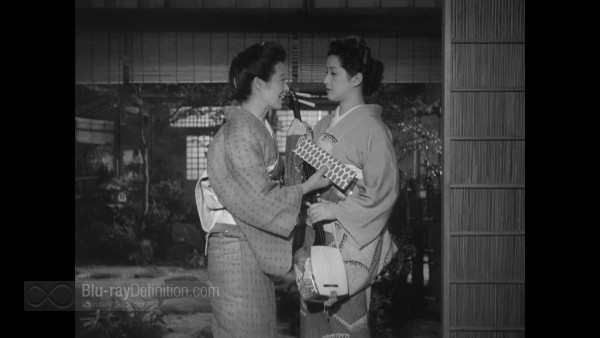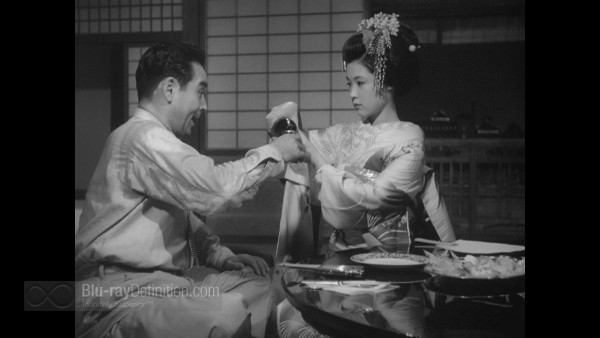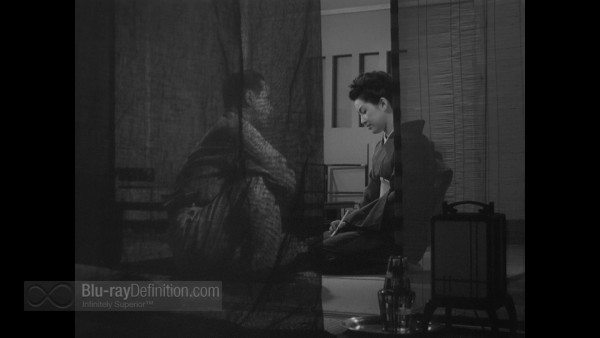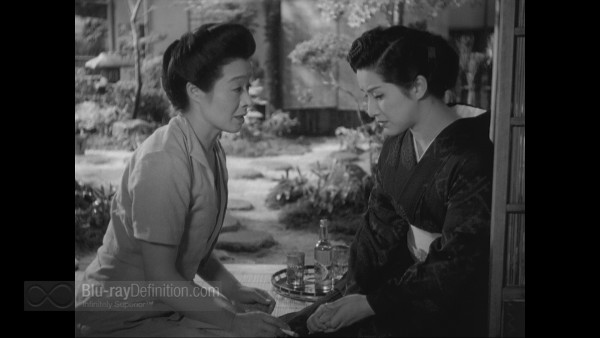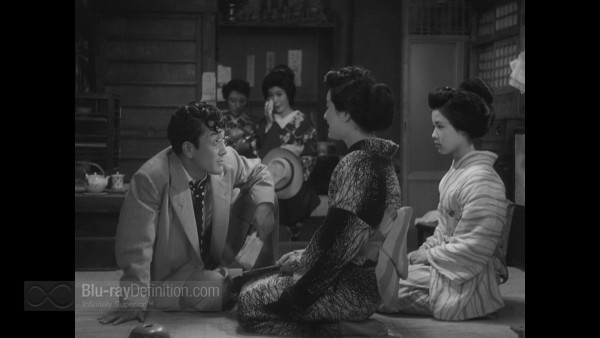–
Click thumbnails for high-resolution 1920X1080p screen captures
(All TheaterByte screen captures are lightly compressed with lossy JPEG at 100% quality setting and are meant as a general representation of the content. They do not fully reveal the capabilities of the Blu-ray format)
The Film
[Rating:4/5]
The feature film on this double feature release from Eureka’s Masters of Cinema series is the 1954 classic Sanshō Dayū (山椒大夫, Sansho the Steward or Sansho the Bailiff) from Kenji Mizoguchi. Based on an ancient story as told by author Mori Ōgai in his 1915 work by the same name, Sanshō Dayū as a film has all the earmarks of the Mizoguchi style – a keen eye for period detail, powerful imagery, and a reliance on long takes that build the intensity and drama of the situations.
A tragedy of love, loss, and family, the story follows three aristocratic family members during the Heian era of Japan, Tamaki (Tanaka Kinuyo) and her two children Zushiō (Hanayagi Yoshiaki) and Anju (Kagawa Kyōko). Forced to flee from their husband and father when he is branded a traitor for being too kind to peasants, the three are eventually separated, Tamaki forcefully sold into prostitution and Zushiō and Anju sold into slavery for the steward Sanshō. Their lives will eventually all take different, tragic turns.
Gorgeously filmed with powerful performances all around and a slow-burning build up to its denouement, this well-loved classic is a must-have film for lovers of Japanese cinema.
Gion Bayashi
[Rating:4/5]
The film, paired with Sanshō Dayū, is Gion Bayashi, (祇園囃子, A Geisha). One of Mizoguchi’s post-war films, Gion Bayashi is a poignant and scathing assessment of the post-war geisha culture, prostitution, and women’s rights in the new, modern Japan. The story follows the sixteen-year-old Eiko (Ayako Wakao), daughter to a recently deceased geisha who must turn to the profession herself when her father turns his back on her and she finds herself unable to pay off her debts. After quickly becoming skilled at her craft, she finds herself confronted with being forced into a relationship with an elderly patron even though it is against the country’s newly crafted constitutional laws.
A completely different tone from Sanshō Dayū, but similar in that it also deals with oppression and rights, wrapping it up in a tragedy, Gion Bayashi feels like a perfect fit for the more popular period film on this release.
Video Quality
[Rating:3/5]
As with the companion release of Ugetsu Monogatari, both films on this release are from rather poor sources that really can’t be cleaned up much without doing irreparable harm to the remaining detail. Sanshō Dayū particularly suffers from heavy graininess and wavering black levels in darker portions of the image. There are noticeable scratches straight through and a rather soft look overall. Gion Bayashi looks a bit cleaner, but it seems paler overall, with a less apparent contrast and higher gamma. Neither one of these films will ever be able to look much better than this, unfortunately, but Eureka has done as well as they could and avoided temptation to apply any heavy-handed digital manipulation.
Audio Quality
[Rating:3.5/5]
Both films are provided with lossless DTS-HD Master Audio 2.0 (48kHz/16-bit) tracks of their original monaural mixes. There’s not much to say about them other than the dialogue sound intelligible to these Western ears, but there is a lot of audible hiss and some crackle still evident in the tracks. I leave it to native Japanese speakers to decide if the dialogue is truly intelligible.
Supplemental Materials
[Rating:3/5]
The always interesting and well informed Tony Rayns gives two video essays that act more as introductions on the films offering information on Mizoguchi as a filmmaker as he was creating the two gems offered up on this release, as opposed to diving deeply into the themes and plot of each film.
The supplements:
Sanshō Dayū:
- Tony Rayns on Sanshō Dayū (1.33:1; SD/480i; 00:10:12)
Gion Bayashi:
- Tony Rayns on Mizoguchi, Sanshō Dayū, and Gion Bayashi (1.33:1; SD/480i; 00:28:03)
- Original Teaser (1.37:1; SD/480i)
- Original Trailer (1.37:1; SD/480i)
- Booklet: Illustrated booklet features rare archival imagery and a full reprint of the 1915 Mori Ōgai story adapted in Sanshō Dayū.
- DVD – Standard DVD release of the films is included in this dual-format edition.
The Definitive Word
Overall:
[Rating:4/5]
Two classic Mizoguchi films are gathered together here by Eureka Entertainment in a fine package that presents this films as good as they probably will ever be.
Additional Screen Captures
Sanshō Dayū:
Gion Bayashi:
[amazon-product region=”uk” tracking_id=”bluraydefinit-21″]B00718WDZ4[/amazon-product]
Shop for more Blu-ray titles at Amazon.co.uk
Shop for more Blu-ray titles at Amazon.com


